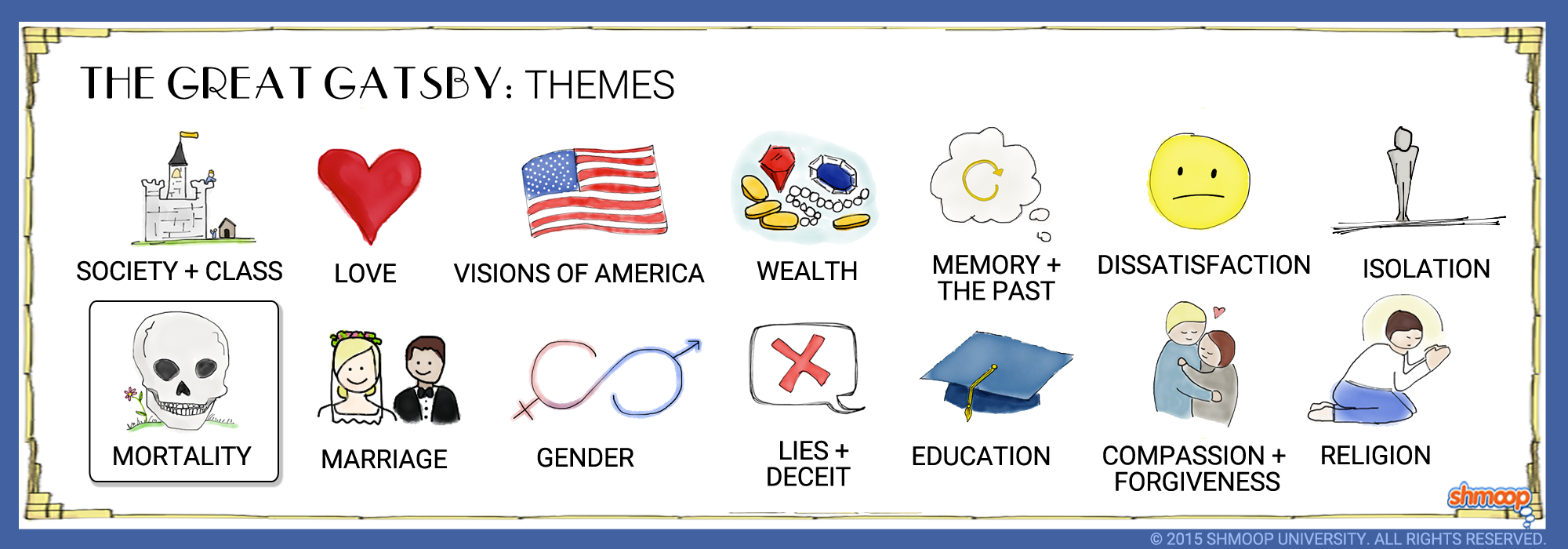 (Click the themes infographic to download.)
(Click the themes infographic to download.)
Sure, there's the hit-and-run and murder/ suicide at the end. (Oops. Did we spoil it for you?) But The Great Gatsby is also interested in metaphorical kinds of death: the kind where Gatsby kills the James-Gatz version of himself in order to take a new life, or the kind where the narrator feels himself constantly getting older, or the kind where the various characters' obsession with the past becomes a stand-in for the universal fear of our own mortality. Morbid? Well, when you think about the massive tragedy that was World War I, you can understand why Fitzgerald had death on the mind.
Questions About Mortality
- Whose fault is it that Gatsby died? His own? Tom's? Daisy's? Wilson's?
- The characters in The Great Gatsby never explicitly discuss death or life after death. Why do you suppose they neglect these topics? What does it say about them?
- What is the effect of Nick realizing he has turned thirty in the midst of Gatsby and Tom's fight over Daisy?
- Speaking of, check out those times when Nick refers to his age. He later refers to his being thirty with the jaded tone that he is "too old to lie" to himself. What is it about aging that bothers Nick so much?
- Before Myrtle's death, Nick says that they "drove on toward death through the cooling twilight." Literally, this means they are driving toward the scene of Myrtle's death. But in what other ways are they driving toward death? Might they also be driving to Gatsby's impending death? Or (gasp) to their own?
Chew on This
Even though death affects all the characters in The Great Gatsby, only Nick Carraway is willing to confront the reality of death and its meaning for his own life.
In the end, Nick is just as afraid of his own mortality as everyone else is. The story he tells in The Great Gatsby is proof of that.